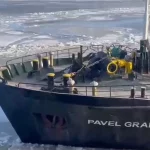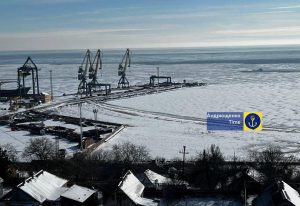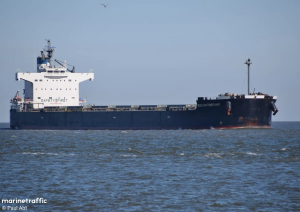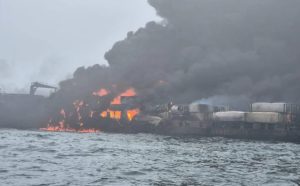Russians cannot save the ship “Pavel Grabovsky” in the Sea of Azov
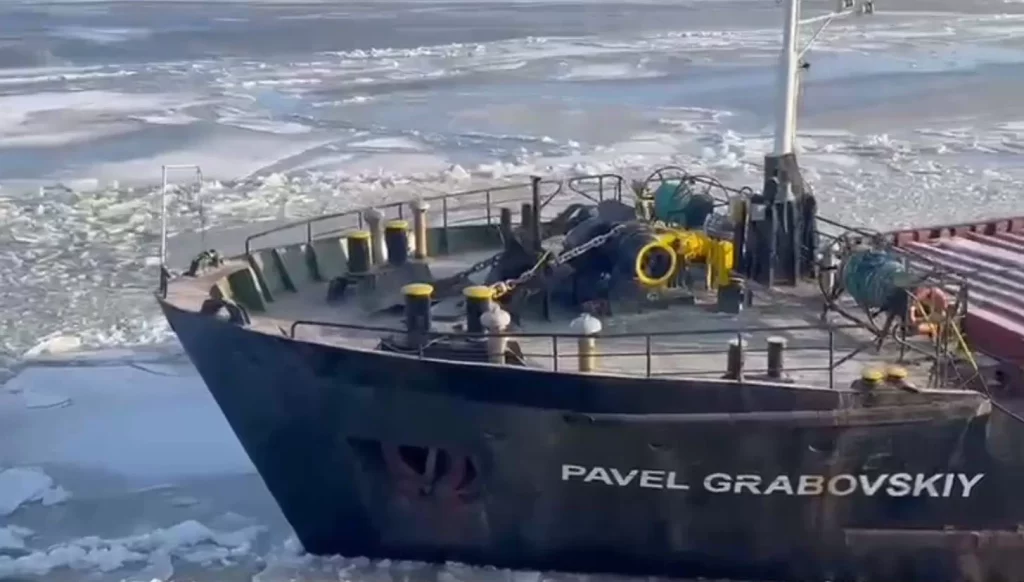
The Russians are trying to save a ship with 3 thousand tons of corn that got into an emergency situation. However, the port refuses to accept it.
The Russian ship “Pavel Grabovsky”, which got stuck and started to sink in the Sea of Azov, is still anchored at the scene of the accident, Channel 24 reports.
As explained by the head of the Center for the Study of Occupation, Petro Andryushchenko, tugboats were sent to the ship and repair work began. However, it was not allowed to enter the port.
Recall that the dry cargo ship “Pavel Grabovsky” under the Panamanian flag, loaded with 3 thousand tons of corn, left Rostov and headed for the Turkish Samsun. But on February 16, near the port of Azov, the bottom of the ship received a hole. In Russia, they claim that there was a malfunction in the diesel engine and that “there is no extreme situation.”
“Judging by everything, the situation is much more serious, they are just trying to hide it. This may be due to recent tanker accidents in the Black Sea. As of yesterday, the ship was in a roadstead near the port of Azov. It is much more difficult to carry out repair work in the open sea than in the port, but they did not allow it to dock,” Andryuschenko noted.
According to him, if the ship can be repaired, it can be towed to the port of Novorossiysk, where a full-scale repair is planned.
This case is just the beginning of large-scale problems for the entire civilian Russian fleet, especially in the waters of the Black and Azov Seas.
“Most of the ships were built in the 1950s and 1960s. Some of them are Russian, others are German ships captured after World War II. In fact, this is already scrap metal, miraculously staying afloat. Russia does not have the resources to renew its fleet, and due to sanctions, it is reluctant to sell new ships,” the head of the Center for the Study of Occupation emphasized.
At the same time, the Azov region is critically dependent on such barges, and the Mariupol port plays a key role in transportation. It is the only one in the region capable of receiving large sea vessels with a carrying capacity of over 20 thousand tons. The loss of the ships will lead to the cessation of port operations, which could seriously affect the logistics of the occupiers.
The day before, USM wrote that the Russian Federation is preparing to remove another 88 wagons of stolen coal from the Mariupol port.
